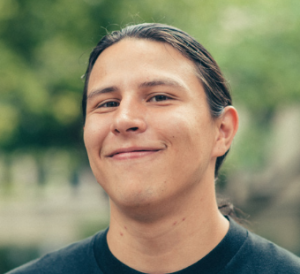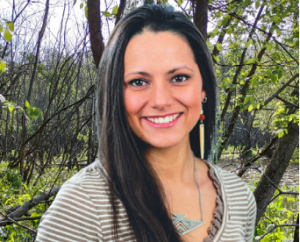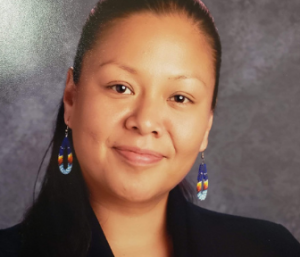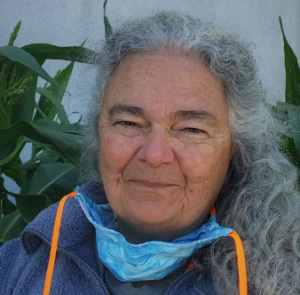Indigenous Water Pedagogies: Cultivating Relations Through the Reading of Water
by Forrest Bruce, Megan Bang, Anna Lees, Nikki McDaid, Felicia Peters, and Jeanette Bushnell
As Indigenous peoples, living in right, respectful relations with the natural world has always been a vital responsibility. The well-being of human communities is intimately connected with the well-being of more-than-human (MTH) communities comprising plants, animals, insects, water, and other natural beings. Indigenous peoples have had a deep understanding of the interdependence between all forms of life for countless generations and have always worked to live in reciprocal relationships with the rest of the natural world (Cajete, 2000; Kimmerer, 2013). Such an orientation to the natural world is needed now, perhaps more than ever, as human communities must figure out how to adapt and build thriving futures in the midst of changing lands and waters. The relations—whether reciprocal, extractive, or some other way of relating with the world—that we make with the natural world will have a profound impact on the well-being of future generations, both human and MTH.
The authors of this paper are all Indigenous. We each see the work we do, reflected in this paper, as part of our collective responsibilities and contributions to our communities. Forrest is a member of the Fond du Lac Band of Ojibwe and of German descent. He is a graduate student and grew up in Minnesota, but has been living in or near Chicago for the last 10 years. Megan is of Ojibwe and Italian descent. She is a mother, auntie, daughter, sister, and cousin, amongst other relations. She is the principal investigator of the project this work was conducted in and has been an educator and scholar for going on three decades. Anna is a Waganakasing Odawa descendent. In addition to her roles in family and community, she spends much of her time researching and working alongside children, teachers, and teacher candidates. Nikki is a citizen of the Shoshone-Bannock Tribes and is also of Paiute and Irish descent. She is a mother of two with another on the way, an auntie to many, a daughter and granddaughter. She is a PhD candidate and researcher for the Indigenous STEAM (sciences, technologies, engineering, arts, and mathematics) project, and is heading into a faculty position. Felicia is Menominee and Santo Domingo Pueblo. She grew up in Chicago and has worked with the Native American community of Chicago for 20 years. She is the program coordinator for the project and worked for seven years as a math and science middle school teacher. Jeanette is a citizen of the Turtle Mountain Band of Chippewa Indians North Dakota. She was born in Tacoma, Washington and raised in Olympia and has lived near the Salish Sea for all but three years of her life. She is retired but continues to teach part-time at the University of Washington Honors Program on topics related to Indigenous philosophy. She continues her life as a sibling, mom, Kookom (grandmother), as well as cousin and auntie to many.
 Forrest Bruce (Ojibwe) is a PhD student in the Learning Sciences at Northwestern University. He is broadly interested in land-based education and the design of community-based learning environments that support Indigenous ways of knowing and being. He received a BS in Social Policy from Northwestern University and worked in Chicago Public Schools’ American Indian Education Program (Title 6) for one year before joining the ISTEAM research project, first as a research coordinator and later as a graduate student.
Forrest Bruce (Ojibwe) is a PhD student in the Learning Sciences at Northwestern University. He is broadly interested in land-based education and the design of community-based learning environments that support Indigenous ways of knowing and being. He received a BS in Social Policy from Northwestern University and worked in Chicago Public Schools’ American Indian Education Program (Title 6) for one year before joining the ISTEAM research project, first as a research coordinator and later as a graduate student.
 Megan Bang (Ojibwe and Italian descent) is a professor of the learning sciences and psychology at Northwestern University and recently served as the senior vice president at the Spencer Foundation. Dr. Bang studies dynamics of culture, learning, and development broadly with a specific focus on the complexities of navigating multiple meaning systems in creating and implementing more effective and just learning environments in science, technology, engineering, arts, and mathematics education. She focuses on reasoning and decision-making about complex socio-ecological systems in ways that intersect with culture, power, and historicity. Central to this work are dimensions of identity, equity, and community engagement. She conducts research in both schools and informal settings across the life course. She has taught in and conducted research in teacher education as well as leadership preparation programs. Dr. Bang currently serves on the Board of Science Education at the National Academy of Sciences. She also serves as an executive editor of Cognition and Instruction and is on the editorial boards of several other top tiered journals in the field.
Megan Bang (Ojibwe and Italian descent) is a professor of the learning sciences and psychology at Northwestern University and recently served as the senior vice president at the Spencer Foundation. Dr. Bang studies dynamics of culture, learning, and development broadly with a specific focus on the complexities of navigating multiple meaning systems in creating and implementing more effective and just learning environments in science, technology, engineering, arts, and mathematics education. She focuses on reasoning and decision-making about complex socio-ecological systems in ways that intersect with culture, power, and historicity. Central to this work are dimensions of identity, equity, and community engagement. She conducts research in both schools and informal settings across the life course. She has taught in and conducted research in teacher education as well as leadership preparation programs. Dr. Bang currently serves on the Board of Science Education at the National Academy of Sciences. She also serves as an executive editor of Cognition and Instruction and is on the editorial boards of several other top tiered journals in the field.
 Anna Lees (descendant of Little Traverse Bay Bands of Odawa Indians) began her career as an early childhood classroom teacher in rural northern Michigan. Now, an associate professor of early childhood education at Western Washington University, she partners with schools and communities in teacher preparation. Anna is committed to developing and sustaining reciprocal relationships with Indigenous communities to engage community leaders as co-teacher educators, opening spaces for Indigenous values and ways of knowing and being in early childhood settings and teacher education. She is currently engaged in research around a land education professional development model led by tribal nations and a relationship-based site-embedded professional development model with tribal early learning programs.
Anna Lees (descendant of Little Traverse Bay Bands of Odawa Indians) began her career as an early childhood classroom teacher in rural northern Michigan. Now, an associate professor of early childhood education at Western Washington University, she partners with schools and communities in teacher preparation. Anna is committed to developing and sustaining reciprocal relationships with Indigenous communities to engage community leaders as co-teacher educators, opening spaces for Indigenous values and ways of knowing and being in early childhood settings and teacher education. She is currently engaged in research around a land education professional development model led by tribal nations and a relationship-based site-embedded professional development model with tribal early learning programs.
 Nikki McDaid (Shoshone-Bannock) is a parent, partner, and doctoral candidate in the Learning Sciences at Northwestern University. Her research interests are broadly focused on informal and formal learning environments at the intersection of land-based education and Indigenous resurgence. She is a former middle school and high school teacher and currently teaches in Dr. Megan Bang’s Indigenous STEAM program. She earned her MA in Teaching from Pacific University and her BS in Sociology from Northeastern University.
Nikki McDaid (Shoshone-Bannock) is a parent, partner, and doctoral candidate in the Learning Sciences at Northwestern University. Her research interests are broadly focused on informal and formal learning environments at the intersection of land-based education and Indigenous resurgence. She is a former middle school and high school teacher and currently teaches in Dr. Megan Bang’s Indigenous STEAM program. She earned her MA in Teaching from Pacific University and her BS in Sociology from Northeastern University.
 Felicia Peters (Menominee and Santo Domingo Pueblo) is the program coordinator for ISTEAM. She previously worked as a middle school math and science teacher for Chicago Public Schools (CPS) and as an educator for the American Indian Education Program in CPS.
Felicia Peters (Menominee and Santo Domingo Pueblo) is the program coordinator for ISTEAM. She previously worked as a middle school math and science teacher for Chicago Public Schools (CPS) and as an educator for the American Indian Education Program in CPS.
 Jeanette Bushnell (Anishinaabe and Irish) teaches at the University of Washington-Seattle and works with Indigenous educators in developing Indigenous Science Technology Engineering Art and Mathematics (ISTEAM) pedagogy. Her company, the NDN Players Research Group, does game consulting and developing. She lives with her family near the Salish Sea where she grows and preserve food.
Jeanette Bushnell (Anishinaabe and Irish) teaches at the University of Washington-Seattle and works with Indigenous educators in developing Indigenous Science Technology Engineering Art and Mathematics (ISTEAM) pedagogy. Her company, the NDN Players Research Group, does game consulting and developing. She lives with her family near the Salish Sea where she grows and preserve food.